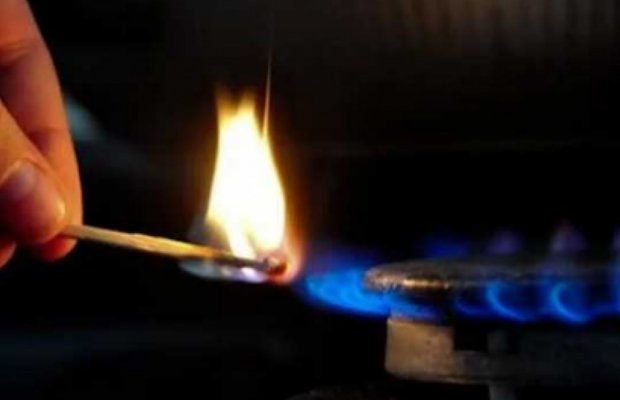Pakistan, a nation heavily reliant on natural gas for its energy needs, faces a significant challenge as its gas reserves continue to deplete rapidly. On 22 June 2023, the Energy Planning Resource Centre (EPRC), under the Ministry of Planning, Development, and Special Initiatives (M/o PD&SI), unveiled a groundbreaking report titled “Pakistan Natural Gas: Policy Issues & Way Forward.”
The report’s findings shed light on the country’s dwindling gas resources and proposed crucial policy measures to address the pressing concerns.
According to the report, Pakistan’s recoverable gas reserves have witnessed a staggering decline. From the original recoverable reserves of 63,311 billion cubic feet (Bcf), the balance recoverable reserves plummeted to 20,951 Bcf by 2021. This rapid decline raises concerns about the country’s future gas production and supply.
The ceremony, attended by key stakeholders in the energy sector, including ministers, representatives from energy organizations, think tanks, academia, and international bodies, aimed to raise awareness about the critical gas issues and initiate a dialogue on viable solutions.
During the presentation, the EPRC team delved into the report’s findings, highlighting the alarming projections for the future. If the current trend persists, natural gas production is forecasted to shrink to 2,306 million cubic feet per day (MMCFD) by 2030. Furthermore, pipeline and dedicated gas availability is expected to decrease to 1,907 MMCFD by 2030, down from 2,971 MMCFD in 2021. The demand for natural gas, however, continues to grow steadily despite a moratorium on new gas connections since 2011 (with exceptions for residential and special commercial purposes).
The report emphasized that a major portion of the high BTU gas, from a total value of 926,068,902 million British thermal units (MMBTU), is consumed by the domestic sector. Cooking purposes alone account for 76% of gas usage in households.
However, during the winter season, space heating becomes a significant factor, with gas consumption for space heating increasing to 47%, followed by 40% for cooking and 12% for water heating in January.
An in-depth analysis revealed that customers falling into the high-consumption category are the largest consumers of gas in the domestic sector, utilizing 88% of gas for water heating and 62% for space heating. This additional gas consumption for heating during the winter months contributes significantly to the gas shortfall experienced during peak demand.
In response to these challenges, the EPRC team proposed a comprehensive demand-side management policy for the domestic sector. The report recommended substituting gas usage for space and water heating with electric appliances, presenting an estimated substitution model that could potentially conserve 31,447 million cubic feet (MMCFt) of gas through water heating and 24,155 MMCFt through space heating substitution.
To encourage consumers to adopt electric alternatives during winter, the report suggested reducing electricity prices while increasing gas prices to achieve price parity. These measures could result in conserving 55,602 MMCFt of gas, which could either produce 5,042 gigawatt-hours (GWh) of power or save USD 583 million by reducing LNG imports.
The report also delved into pricing mechanisms and subsidy models for gas in Pakistan. It stressed the importance of transitioning to a cost-reflective pricing regime, moving away from an entrenched cross-subsidy mechanism.
Regular revisions in natural gas prices based on the basket price of LNG could help reduce the accumulated gas circular debt, which stood at Rs. 577 billion. The government has already taken steps in the ongoing fiscal year to reduce the differential accumulation by providing budgeted subsidies of Rs. 25 billion.
Furthermore, the report explored the country’s reliance on LNG imports to bridge the gas shortfall. From importing 282 MMCFD of LNG in 2016, Pakistan’s LNG imports have steadily increased, reaching 1,070 MMCFD by 2021. To meet the country’s projected gas demand of 3,828 MMCFD by 2030, the report estimates that 1,921 MMCFD would need to be fulfilled through LNG imports.
However, concerns were raised about the existing long-term contract with Qatar Gas, which includes a clause for price revision in 2026. The report emphasized the need to expedite the process of entering into fresh long-term LNG import contracts. It also highlighted the potential of trading LNG at the lowest spot market rates, a concept gaining popularity globally.
To improve gas infrastructure, the report recommended expanding LNG terminal and regasification capacity, exploring the possibility of imported gas storage in exhausted wellheads, and developing a North-South Gas pipeline. It also suggested considering subsurface gas storage options in depleted reservoirs and gas storage over the surface using salt caverns, which have lower cost implications. Feasibility studies were proposed to evaluate the costs and identify suitable areas for such storage facilities.
Addressing the issue of high unaccounted for gas (UFG) losses in Sui companies, the report called for analyzing each UFG component and adopting international best practices to reduce these losses.
The report concluded by presenting an action plan policy matrix, outlining short-, medium-, and long-term actions to be taken by the concerned ministries and departments. It highlighted the responsibilities of each stakeholder in implementing the proposed measures and ensuring the improvement and sustainability of the gas sector.





Ghulam, I am an American associate of the late Miangul Adnan Aurangzeb a former Pakistan Parliament Member and Energy Engineer. We identified a partial solution and were working on trying to commercialize this device for use in Pakistan when he died last year.
I sent you an email and I hope that you will be doing a follow up article. I will give you information which you can use and public contact information. I don’t want to be contacted by the public yet I want you to write about it first.
I did tell Ayan Ali at the Trade Office of the United States Embassy about it.